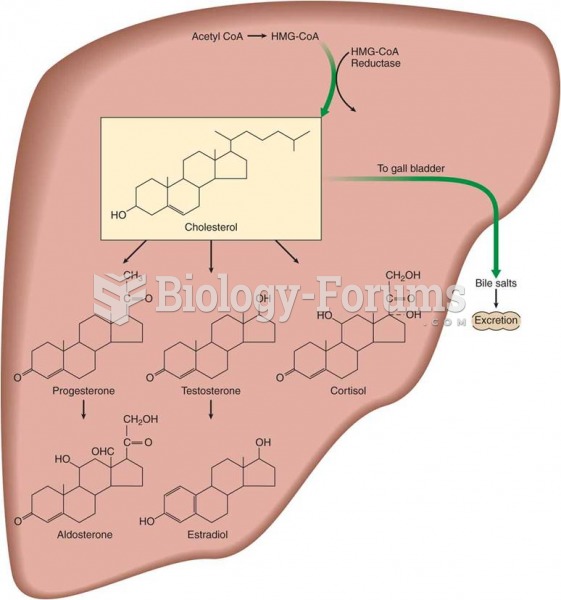|
|
|
It is difficult to obtain enough calcium without consuming milk or other dairy foods.
Famous people who died from poisoning or drug overdose include, Adolf Hitler, Socrates, Juan Ponce de Leon, Marilyn Monroe, Judy Garland, and John Belushi.
Historic treatments for rheumatoid arthritis have included gold salts, acupuncture, a diet consisting of apples or rhubarb, nutmeg, nettles, bee venom, bracelets made of copper, prayer, rest, tooth extractions, fasting, honey, vitamins, insulin, snow collected on Christmas, magnets, and electric convulsion therapy.
More than 20 million Americans cite use of marijuana within the past 30 days, according to the National Survey on Drug Use and Health (NSDUH). More than 8 million admit to using it almost every day.
The horizontal fraction bar was introduced by the Arabs.
 Asthma. (a) A normal bronchiole. (b) An asthmatic bronchiole. During an asthma “attack,” the bronchi
Asthma. (a) A normal bronchiole. (b) An asthmatic bronchiole. During an asthma “attack,” the bronchi
 Nebulizer. The nebulizer converts a liquid medication to a mist that is easily inhaled. A face mask,
Nebulizer. The nebulizer converts a liquid medication to a mist that is easily inhaled. A face mask,





